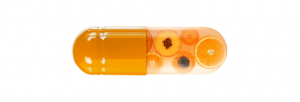Dietary Supplements: Do We Need Them?
 Do we really need vitamin and mineral supplements? Many people take multivitamins believing that they can complete a diet that is poor in particular vegetables , but also in all those nutrients that are often found in whole grains and in all whole products (even whole salt, yes, salt), in oil seeds, dried fruit and legumes. But, since our diet is often poor in all these things, the lack of nutrients in our diet is made up for with two or three tablets: we have thus made our fill of mineral salts, vitamins, amino acids and fatty acids.
Do we really need vitamin and mineral supplements? Many people take multivitamins believing that they can complete a diet that is poor in particular vegetables , but also in all those nutrients that are often found in whole grains and in all whole products (even whole salt, yes, salt), in oil seeds, dried fruit and legumes. But, since our diet is often poor in all these things, the lack of nutrients in our diet is made up for with two or three tablets: we have thus made our fill of mineral salts, vitamins, amino acids and fatty acids.
We’re alright now. Or not?
If there must be all these things in a correct diet,What does my body care where do I get them from?
In short: is there a difference between dietary supplements such as multivitamins and a diet based on plants and highly nutritious foods?
The answer of course is yes. In fact, it has been widely demonstrated that supplements and multivitamins do not work like vitamins and mineral salts taken from food: in the last year three long-term studies had in fact established the inefficiency of the vitamins taken per tablet (or a utility of less than ten per cent), while the benefits of a nutrient-rich diet are undoubted.
At the same time, let us ask ourselves how much of the vitamins and mineral salts that the body takes correctly from vegetables can instead be absorbed in the form of tablets: in short, there is also an absorption problem which means that, for example,the vitamin C in supplement should be dispersed compared to that taken with three kiwis and an orange juice . Also, and I tell you after five years of working and reading nutrition studies, it is really difficult to establish the correct intake of supplements: the only supplements I would recommend taking, at the moment , are the Omega3 ones., especially if we choose good quality ones. In fact, our diet is often lacking in omega3 fatty acids, while for vitamins, amino acids and mineral salts a good dietary profile, with the renowned five portions of fruit and vegetables per day (about a kilo of vegetables per day), a consumption of whole fibers and other highly nutritious foods (nuts, seeds, olives, etc.) makes us useless to resort to any type of chemical supplement, multiplying the benefits for our health a hundredfold. While those who resort to supplements often use them as an excuse for not eating adequately.































+ There are no comments
Add yours